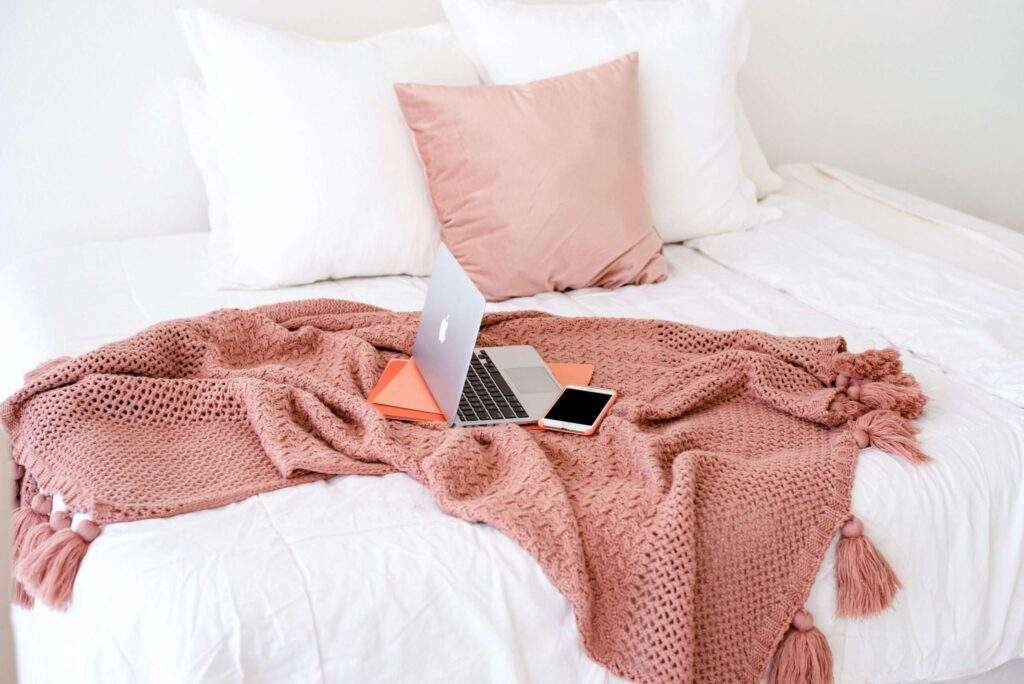There seems to be a bit of a backlash against minimalism going on at the moment and I wanted to share some of my thoughts on this. Because minimalism really isn’t what many people think it is.
It appears that lots of people decided that decluttering and organising equals minimalism (they don’t) and they don’t like how they now feel, having gotten rid of lots of their stuff because someone told them to. I’ve seen numerous posts saying someone has tried minimalism and didn’t like it, so they’re going back to maximalism (as it’s being called). There doesn’t appear to be any balance between the two. Shouldn’t there be? Something called normal, perhaps? Minimalism is being seen as a passing fad or phase, but it’s neither and shouldn’t be viewed as such.
Minimalism Is Not About Getting Rid Of Everything
It isn’t about getting rid of everything you own and living in an empty house or apartment. It’s not about spending zero money all year. By all means take part in no-spend months – your bank account will definitely thank you for it – but that’s not minimalism. And it definitely isn’t about austerity. Minimalism isn’t about giving up everything you love: things that make you feel good, or add value to your life.
I believe the confusion around minimalism began when the number of people pushing decluttering and organising methods exploded (primarily social media influencers and wannabe influencers). Everywhere you look, someone is telling you that you must buy this storage system. You must get rid of that and stop buying this, or you must have a certain number of clothes in your wardrobe – this is fabulous for some people, but not all. Some call a tidy organised home minimalist and it’s just not the case. There is so much conflicting advice around at the moment – it’s confusing, and furthermore it just isn’t essential!
Minimalism Is Not About Having Nothing
Read that again. Should you decide to live like that as a minimalist, that’s entirely down to you and fair play to you – we can all choose exactly how we want to live after all. But if someone says your walls must all be painted white, please ask why? If you like colour, have colour. You like lots of throws to wrap yourself in on a chilly evening? (Let’s face it, it’s cheaper than popping the heating on right now!) Then have them. But be intentional about it.
Don’t buy stuff just for decoration because an influencer shows you theirs and somehow creates the desire within you for you to be exactly the same: for your home to be a carbon copy of theirs. You shouldn’t feel any pressure to conform to a certain aesthetic just because you want to reduce your consumption or reduce your impact on the planet (although these two things can go hand in hand, of course).

Being Intentional
Minimalism is about being intentional. Intentional about our spending; about what we bring or allow into our homes, our worlds, and our lives. It’s about choosing quality over quantity and reducing our impact on the planet and her finite resources.
Living intentionally gives us more freedom: freedom from consumerism; from spending for spending’s sake; from ‘trying to keep up with the Jones’ or the latest fads and trends. It creates time freedom, too, because when you own less, you spend less time maintaining stuff. And when you’re buying quality items that last, you spend less time shopping, too (and less money in the long run).
Summary
You can have a cosy, warm home and still be a minimalist, because your actions and intentions dictate what being a minimalist means to you, not the number of things you do or don’t own.
What are your thoughts? Do you consider you are living intentionally, or do you find it difficult to ignore current trends? Are you a spender or a saver? Please share your thoughts in the comments below.
©PerfectlyOrganised
Check out more about decluttering, minimalism and simple living at my website, PerfectlyOrganised.org (or read more about PerfectlyOrganised here).
